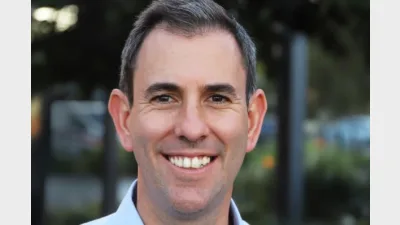A change of menu
Last month, Jonica Newby from ABC TV’s Catalyst program asked if too much choice is making us sick. The program examined an argument made in 2004 by US psychologist Barry Schwartz that, “as our number of choices keeps growing, negative aspects of having a multitude of options begin to appear”.
In other words, we get paralysed and miserable from too much choice.
This is an argument that even the Australian Prudential Regulation Authority (APRA) has raised. In a paper released in February last year, APRA claimed Australian super fund members were given too much choice.
How has this impacted on administration of small funds?
While the introduction of member investment choice some years ago seemed to spur growth in the complexity of many super funds, the introduction of super choice has, in our experience, seen small funds focus on offering limited choices to members.
It’s a reversal of the previous trend to offer a wide variety of choice and, rather than being a reaction to the too much choice debate, in my opinion it’s a practical reaction to a small fund’s more limited administration and marketing budget.
Put simply, providing more choice and properly educating staff and members about these choices stretches the administration and marketing budget very thinly and, like restaurants, super funds are now being chosen based on a quality menu at reasonable prices.
Our clients are focusing their efforts on a smaller number of solid investment alternatives that can be explained really well, whilst keeping their members informed through excellent levels of communication and much timelier reporting.
These are all areas where technology can significantly leverage a small fund so that it can compete effectively against larger alternatives.
At Supercorp, we’ve done a lot of work with small funds over the last 12 months to improve their member reporting capability and to make what’s happening with their funds more transparent to clients.
This is going to become even more important with the new fee disclosure rules coming into play in July.
Compliance, Fraud, and Legislation Changes — the move to internal admin
Another observation made over the last 12 months is the trend to internal administration. While the trustee licensing requirement is certainly reducing the number of small funds operating in this country, and many of them are indeed disappearing into the black hole of a master fund, there are still many funds that wish to retain their individualism. These funds face two choices, they must either licence or accept an external trustee, or they must either outsource their administration or do it internally.
With the advent of financial service reporting legislation the latter has become more important, as we have seen a desire amongst small funds to increase automation and compliance checking within their operations to prove they are achieving their legislated responsibilities.
Being able to better monitor the flow of activity and information and move quickly to implement improvements are the chief concerns for many of the small funds resisting the master fund option. These are the same funds we are now seeing wanting to bring their administration back under internal control.
Small funds are now looking to take up legislative changes — such as the changes to the pension stream in the last 12 months — more quickly than ever before. This is because the Government has been making a lot of positive changes that funds want to bring in quickly and, thanks to member choice, there is more perceived awareness among members of what should be available.
As a result of these ambitions, more small funds are moving away from the outsourcing of administration. We’ve had a threefold increase this year in queries from small funds looking to bring integrated administration systems back in-house.
Choice is driving small funds to stand out from the crowd, and those that are moving away from outsourcing say their administration system is not as flexible as they need it to be.
The outsourcer, after all, is generally more interested in providing a set menu of options, while our small fund clients are looking to be different. As one client said to me the other day, “would you come to my restaurant if I only served Big Macs?”.
I believe that the main difference now with super choice is that small funds need to be at least as proactive in the market as large funds, if not more. Small funds, of course, don’t have as many dollars to invest in research and development, yet they are being forced to react to industry changes as fast or faster as larger funds and, as a result, small funds have a heavier reliance on technology providers to supply the right solution to them off the shelf.
Fortunately, all this is possible as a result of the work that’s been done in the last few years on straight-through-processing by administration software providers such as Supercorp.
This work has made sure information is flowing smoothly and freely into the administration system, and that the cost of gathering and allocating that data is much lower. The result is members getting a better deal.
So instead of being overwhelmed with choice, members have fewer choices, with better quality and more variety — sounds like a meal worth sharing.
Kurt Groeneveld is managing director of Supercorp Australia.
Recommended for you
Following the roundtable, the Treasurer said the government plans to review the superannuation performance test, stressing that the review does not signal its abolition.
The Australian Prudential Regulation Authority (APRA) has placed superannuation front and centre in its 2025-26 corporate plan, signalling a period of intensified scrutiny over fund expenditure, governance and member outcomes.
Australian Retirement Trust (ART) has become a substantial shareholder in Tabcorp, taking a stake of just over 5 per cent in the gaming and wagering company.
AustralianSuper CEO Paul Schroder has said the fund will stay globally diversified but could tip more money into Australia if governments speed up decisions and provide clearer, long-term settings – warning any mandated local investment quota would be “a disaster”.











